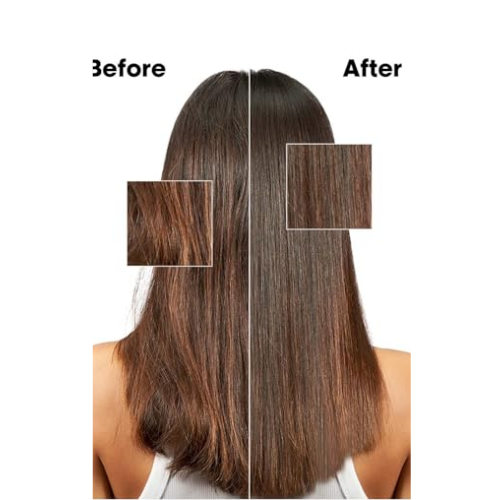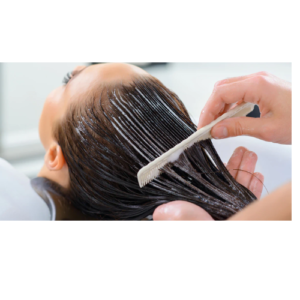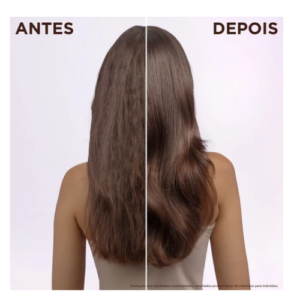Choosing the right hair mask can make all the difference when it comes to maintaining healthy, shiny, and strong hair. Hair masks are designed to provide deep nourishment and target specific hair concerns such as dryness, damage, frizz, or lack of volume. However, selecting the right one can be overwhelming with so many options available. This guide will help you understand the different factors to consider when choosing the best hair mask for women, ensuring that you find the perfect match for your hair type and needs.
1. Identify Your Hair Type and Texture
Before choosing a hair mask, it’s crucial to know your hair type and texture, as different masks cater to specific hair needs. Here’s how to determine what you need:
- Fine Hair: Opt for lightweight, volumizing masks that won’t weigh your hair down.
- Thick Hair: Choose rich, moisturizing masks to enhance smoothness and reduce frizz.
- Curly Hair: Go for deeply hydrating masks with nourishing oils to define curls and reduce dryness.
- Straight Hair: Use masks that add shine and manageability without leaving residue.
- Wavy Hair: Opt for a balancing mask that adds moisture while maintaining volume.
2. Know Your Hair Concerns
Identify the primary issues you want to address, such as dryness, damage, frizz, or color protection. Here’s a breakdown of hair masks based on common hair concerns:
- Dry and Brittle Hair: Look for masks with hydrating ingredients like shea butter, avocado oil, honey, and glycerin. These help restore moisture and improve elasticity.
- Damaged Hair: Choose masks with proteins like keratin, silk, or collagen to repair damaged hair strands. Proteins strengthen hair structure and reduce breakage.
- Frizzy Hair: Anti-frizz masks with argan oil, coconut oil, or macadamia oil smoothen hair cuticles and tame frizz.
- Oily Hair or Scalp: Opt for lightweight, clarifying masks containing clay, tea tree oil, or apple cider vinegar to balance oil production without making hair greasy.
- Color-Treated Hair: Look for color-safe masks with UV protection and ingredients like sunflower oil and chamomile extract to prevent color fading and add shine.
- Thin or Fine Hair: Volumizing masks with biotin, aloe vera, or hyaluronic acid help add body and lift without weighing hair down.
- Scalp Issues (Dandruff, Itchiness): Scalp-focused masks with tea tree oil, peppermint, and salicylic acid soothe irritation and reduce dandruff.
3. Check the Ingredients List
A good hair mask should be free from harmful chemicals and enriched with nourishing ingredients. Here are some ingredients to look for and avoid:
Ingredients to Look For:
- Natural Oils: Coconut oil, argan oil, olive oil, jojoba oil — for deep nourishment.
- Proteins: Keratin, silk protein, collagen — for repairing damaged hair.
- Hydrating Agents: Aloe vera, honey, hyaluronic acid — to lock in moisture.
- Vitamins and Antioxidants: Vitamin E, Vitamin B5, and antioxidants — to protect hair from damage and promote growth.
Ingredients to Avoid:
- Sulfates: Can strip natural oils and cause dryness.
- Parabens: Potentially harmful preservatives linked to scalp irritation.
- Silicones: May cause buildup over time, leading to dullness and limp hair.
- Alcohols: (Avoid drying alcohols like Isopropyl and Ethanol) — these can make hair brittle.
4. Consider Your Hair Care Routine
Your current hair care routine should influence your choice of hair mask. If you use styling tools frequently or dye your hair, a repair mask with proteins and antioxidants might be ideal. If you have a minimal routine, a hydrating mask used once a week can suffice.
- For Heat-Styled Hair: Use a heat-protective mask with ingredients like argan oil and hydrolyzed proteins.
- For Natural Hair: Choose nourishing masks with shea butter, coconut milk, and honey to maintain moisture and softness.
5. Select the Right Mask for Your Scalp Type
The health of your scalp is as important as the hair itself. If you have a dry scalp, opt for moisturizing masks with ingredients like aloe vera and tea tree oil. For oily scalps, look for clay-based masks that absorb excess oil and keep your scalp balanced.
- Dry Scalp: Use masks with aloe vera, jojoba oil, and oatmeal.
- Oily Scalp: Choose masks with kaolin clay, bentonite clay, or apple cider vinegar.
- Sensitive Scalp: Go for fragrance-free, gentle formulas with calming ingredients like chamomile or calendula.
6. Frequency of Use
Different hair masks are designed for varying levels of frequency. Heavy, protein-rich masks should not be used more than once a week, as they can cause stiffness. Hydrating masks can be used 2-3 times a week, depending on your hair’s needs. Always follow the instructions on the product packaging to avoid overuse.
7. Read Reviews and Ratings
Customer reviews and ratings can provide valuable insights into the effectiveness of a hair mask. Look for reviews that mention hair type, specific hair concerns, and results. This will help you narrow down the best options suited for your needs.
8. Test for Allergies or Sensitivities
If you’re trying a new product, it’s wise to do a patch test first. Apply a small amount of the mask on your inner arm and wait for 24 hours to see if there’s any reaction. This is particularly important if you have sensitive skin or scalp issues.
9. Choose Between Ready-Made and DIY Hair Masks
While ready-made hair masks are convenient and formulated with a precise blend of ingredients, DIY hair masks can be customized based on what your hair needs. Here are some quick DIY hair mask ideas:
- For Dry Hair: Mix 2 tablespoons of olive oil with 1 tablespoon of honey.
- For Damaged Hair: Combine 1 mashed avocado with 2 tablespoons of yogurt.
- For Oily Scalp: Blend 2 tablespoons of apple cider vinegar with 1 tablespoon of honey and water.
10. Price and Brand Reputation
High-quality hair masks can range from budget-friendly to high-end products. Choose a reputable brand known for using safe, effective ingredients. Don’t always go for the cheapest option—investing in a good hair mask can save you from potential hair damage in the long run.
Choosing the best hair mask for women requires an understanding of your hair type, texture, and specific hair concerns. By considering the ingredients, scalp health, and your hair care routine, you can find a mask that fits your needs perfectly. Remember, consistency is key—use your hair mask regularly and pair it with a balanced hair care routine to achieve the best results.
With the right hair mask, you can transform dull, damaged hair into strong, healthy, and beautiful locks




